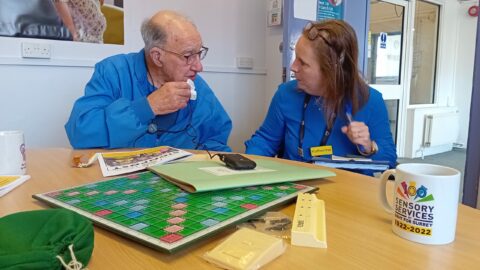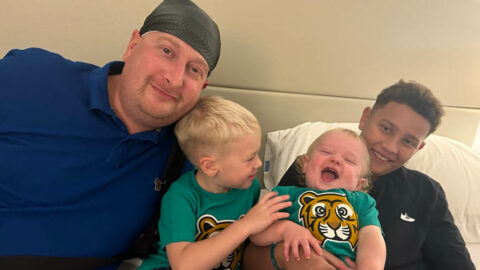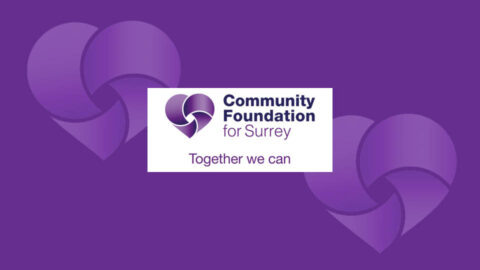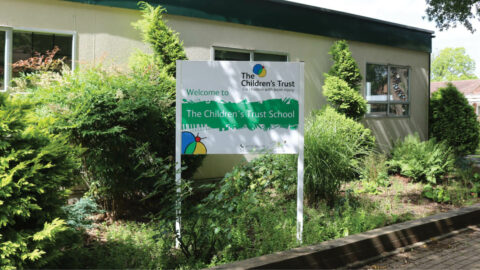Dyscover Aphasia

Never heard of aphasia? Nor had we, until now. Yet this communication disability affects 300,000 people in the UK – mostly after having experienced a stroke. At some point, this might affect any one of us. This month, Surrey-based charity, Dyscover, who provide local Aphasia sufferers and their families’ vital support, explain how to recognise and help somebody with this disability…
Running for more than 21 years, Dyscover offer vital support to Surrey sufferers and their loved ones, with 90 members who currently need their services.
“Aphasia affects a person’s ability to find words and to understand language, both spoken and written,” the charity’s Development Officer Alice Owen, explains. “Aphasia ranges from mild to severe and can be a long-term condition which impacts on whole families.”
“It is isolating, frustrating, and is usually acquired without warning, most often through a stroke, when the language centre in the brain can be damaged. After NHS rehabilitation services have finished, many people with aphasia will continue to need support to re-engage with life – support which may be required for many years to come. Dyscover offers a unique and comprehensive programme of conversation groups, courses and extra activities led by specialist speech and language therapists and trained volunteers.”
The charity also runs a family support programme and highly prioritises raising awareness of the communication disability. Their dedicated team of aphasia ambassadors – all of which are personally affected by the disorder – play an important role by visiting community groups to share their experiences.
“It is important for us, as a community, to have an awareness of communication disorders such as aphasia, as we have a responsibility within our communities to ensure that people are free from isolation and able to access the same opportunities open to all,” Alice continues.
“By understanding different disorders people have a better knowledge on how they can assist someone particularly when out and about, catching a bus or accessing the bank for example. Because aphasia affects so many people (one in every three strokes result in aphasia- strokes can, of course, happen at any age) people will often know of someone with aphasia; they just may not have realised. Often described as a hidden disorder, some people simply don’t realise or understand how to help someone communicate. Very few people would realise that despite an individual having aphasia, their IQ is unaffected, so as one might imagine it is really frustrating.”
So, how can we help someone who may be suffering from aphasia? We asked Alice for the charity’s advice:
“You can help a person with aphasia by speaking slowly and clearly, checking the person has understood, waiting for someone to speak and allowing time for a person to finish a word or sentence. Using a pen and paper can also help the sufferer to ask questions using key words or to write possible answers for someone to indicate an answer to a question. Making someone feel relaxed will increase their confidence,” she says.
Dyscover relies on the help of more than 40 volunteers but need more to help them provide support for more sufferers. Roles are very varied (covering everything from active community fundraisers to marketing!) and anyone interested is asked to get in touch: 01737 819419 or visit their website www.dyscover.org.uk or email them on info@dyscover.org.uk.
Those requiring Dyscover’s help can also contact the charity on the above details.






